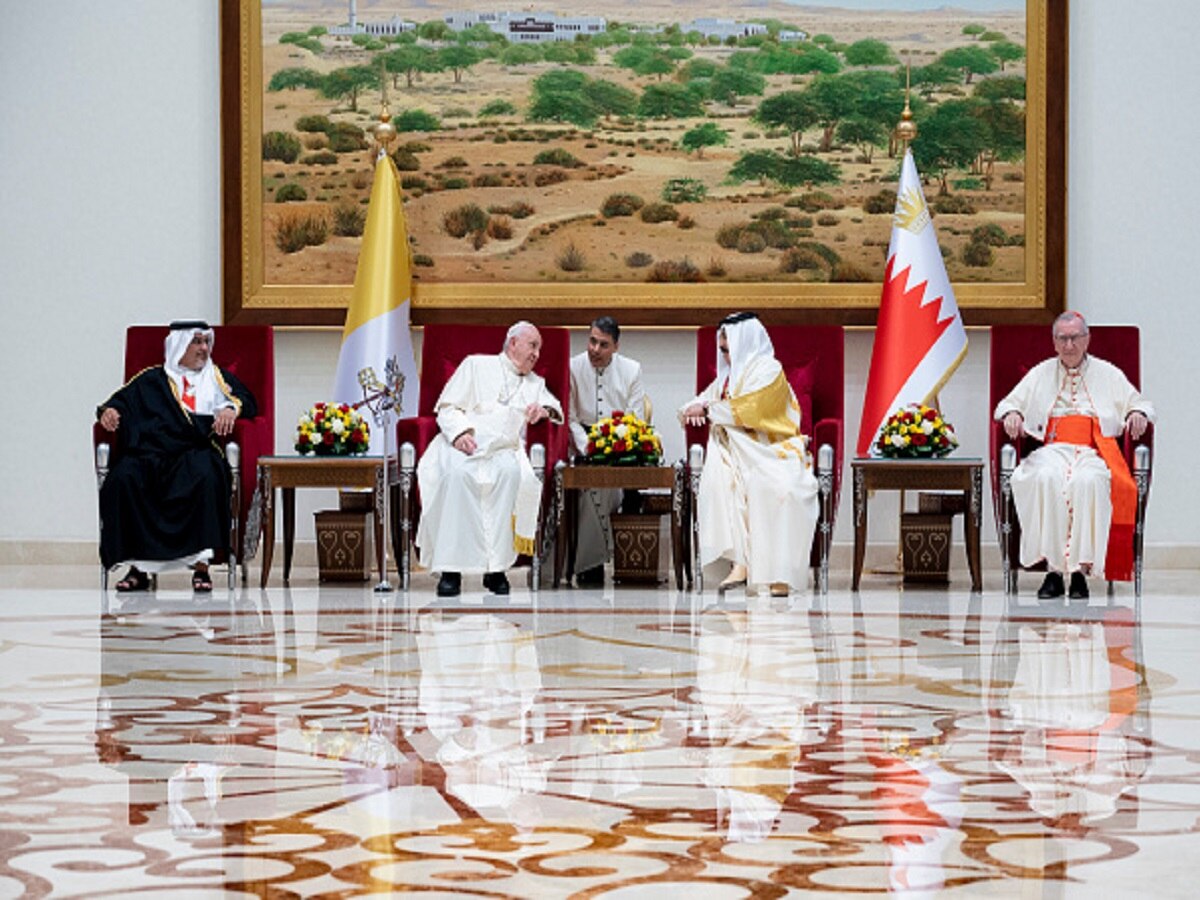On his first visit to Bahrain, Pope Francis on Thursday called for an end to discrimination and human rights breaches. It is vital that “fundamental human rights are not violated but promoted”, the pope said, Al-Jazeera reported.
The Shia Muslim opposition and human rights organisations accuse the Sunni monarchy of ignoring human rights violations, which the authorities deny, AP reported.
In his first papal visit to Bahrain, Francis alluded to sectarianism when he landed in the desert village of Awali and met with Al Khalifa at the Sakhir royal palace. Speaking to government officials and diplomats from the palace's gleaming courtyard, Francis commended Bahrain's heritage of tolerance and mentioned the country's constitution, which prohibits religious discrimination, as a declared commitment that must be put into effect.
Francis also encouraged the Arab Gulf nation to establish "safe and dignified" working conditions for its immigrant employees, who have long experienced abuse and exploitation in the island's construction, oil extraction, and domestic service industries, with King Hamad bin Isa Al Khalifa at his side, news agency AP reported.
“Let us guarantee that working conditions everywhere are safe and dignified,” the 85-year-old pontiff was quoted as saying by the news agency Reuters.
While polite, Francis could not avoid some of the country's complicated social concerns during his four-day visit to participate in a government-sponsored ecumenical summit on East-West collaboration and minister to the country's tiny Catholic population.
ALSO READ: French MP Yells ‘Go Back To Africa’ To Black MP, Leaders Ask For His Termination
Francis, 85, who has been using a wheelchair for several months due to strained knee ligaments, said he was "in a lot of agonies" when flying to the Gulf. He welcomed journalists seated in the plane's aisle for the first time rather than stepping through it, AP reported.
The official Twitter handle of Pope Francis posted, "May we never allow opportunities for encounter between civilizations, religions, and cultures to evaporate. Let us never permit the roots of our humanity to dry up! Let us work together! Let us work for togetherness, for hope!"
Human rights organisations and relatives of Shiite activists on death row urged Francis to use his visit to Bahrain to call for the abolition of capital punishment and to advocate for political dissidents, hundreds of whom have been detained since Bahrain violently crushed the 2011 Arab Spring protests with the assistance of neighbouring Saudi Arabia and the United Arab Emirates.
Bahrain has imprisoned Shia activists, deported others, stripped hundreds of their citizenship, outlawed the major Shia opposition party, and closed down its primary independent newspaper in the years afterward.
Bahrain's government claims to support human rights and freedom of expression. The administration informed The Associated Press in advance of the trip that it had a "zero-tolerance stance toward discrimination, persecution, or the fostering of division based on race, culture, or faith."
(With Inputs From Agencies)


